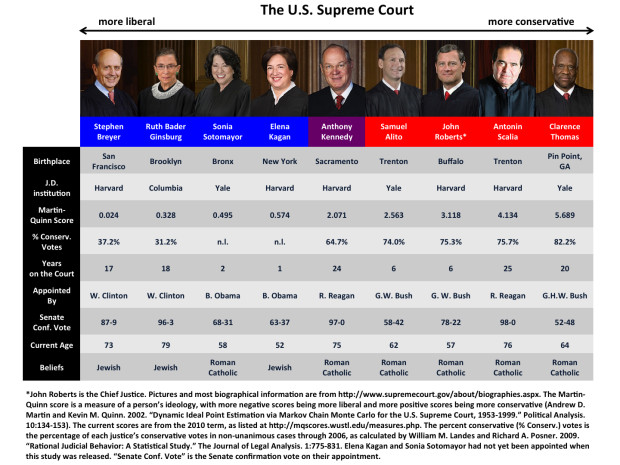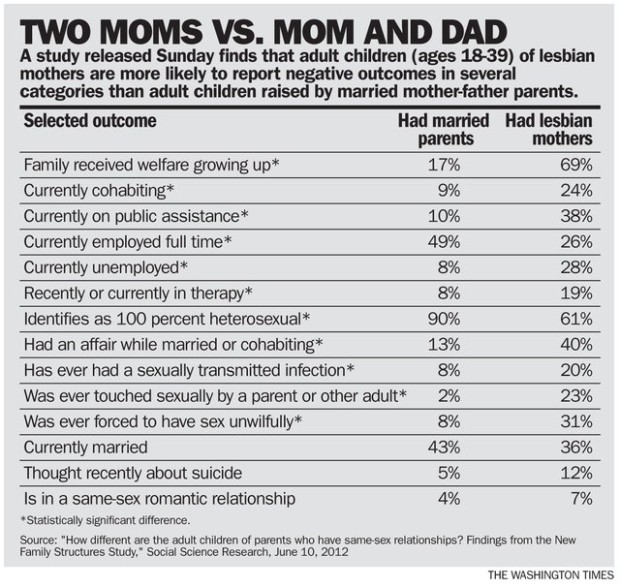On May 28, 2010 I was one of several homeschool alumni to address the Kokomo Area Schools at Home (KASH) graduates in Kokomo, Indiana. This was the speech I prepared.
Good evening! It’s great to be back in Kokomo. I want to extend a huge thank you to the KASH Leadership for inviting me to speak here tonight. Parents, graduates, family, and friends, it is an honor to celebrate with you!
Graduates,
the cap and gown you’re wearing tonight highlight your achievements, unite you with others in your graduating class, and make for some great graduation pictures.
Tonight in addition to your cap and gown I’m sure that many of you are also wearing…
- A belt of truth
- A breastplate of righteousness
- Sandals of readiness
- A shield of faith
- A helmet of salvation
- The sword of the Spirit
You’re wearing them because there’s a war happening tonight, and none of us are off-duty.
People are being imprisoned, and some are defecting to the Enemy. This war is taking place in the spiritual realm–possibly even in your mind right now. It’s the war of worldviews.
Let’s map the field of battle. It starts with a question:
What’s secular and what’s sacred?
I have a list of 10 subjects. If you would, please count the number that are secular:
- Politics
- History
- Economics
- Theology
- Psychology
- Sociology
- Biology
- Philosophy
- Ethics
- Law
OK. That’s the list. Were all 10 secular? No? Nine? Eight? Five? One?
If you said today that all ten of these subjects were sacred, I’d agree with you. I’ll tell you why:
“The earth is the Lord’s and all that’s in it.” (Psalm 24:1)
Everything–Politics, history, economics, theology–it’s all His.
God put it all under Jesus’ feet. In putting everything under him, God left nothing that is not subject to Him. Yet at present we do not see everything subject to Him.” (Hebrews 2:6-8)
OK–so why then is there a war?
Right now the earth is being claimed by a tin-pot dicator named Satan. But Jesus Christ has a prior claim on this earth and everything in it. First, He created it. Then, He fought and died to save it from the sin we unleashed on it. Soon He’ll be coming back to claim it.
That raises a question. What’s Jesus waiting for?
Glad you asked. Consider 2 Peter 3:2-15.
“In the last days scoffers will come, scoffing and following their own evil desires.
They will say, “Where is this ‘coming’ he promised? Ever since our fathers died, everything goes on as it has since the beginning of creation.” [Sound likes some good evolutionary theory!]
“But they deliberately forget that long ago by God’s word the heavens existed and the earth was formed out of water and by water. By these waters also the world of that time was deluged and destroyed. By the same word the present heavens and earth are reserved for fire, being kept for the day of judgment and destruction of ungodly men. But do not forget this one thing, dear friends: With the Lord a day is like a thousand years, and a thousand years are like a day. The Lord is not slow in keeping his promise, as some understand slowness. He is patient with you, not wanting anyone to perish, but everyone to come to repentance.” [AHA! That’s why He’s waiting–so people can repent!]
“But the day of the Lord will come like a thief. The heavens will disappear with a roar; the elements will be destroyed by fire, and the earth and everything in it will be laid bare. Since everything will be destroyed in this way, what kind of people ought you to be? You ought to live holy and godly lives as you look forward to the day of God and speed its coming. That day will bring about the destruction of the heavens by fire, and the elements will melt in the heat. But in keeping with His promise we are looking forward to a new heaven and a new earth, the home of righteousness. So then, dear friends, since you are looking forward to this, make every effort to be found spotless, blameless and at peace with him.
Bear in mind that our Lord’s patience means salvation, just as our dear brother Paul also wrote you with the wisdom that God gave him.” [Another reminder of why we’re here.]
Jesus is patiently waiting for the final invasion because God in His mercy is allowing as many as possible to freely come to Him before the Last Judgment.
What’s our job?
As soldiers of Christ, we are reclaiming occupied ground, freeing captives from concentration camps, and inviting them to join us as we follow our Master. “
Here’s how Jesus put it:
“The Spirit of the Lord is on me, because he has anointed me to preach good news to the poor. He has sent me to proclaim freedom for the prisoners and recovery of sight for the blind, to release the oppressed, to proclaim the year of the Lord’s favor.” (Luke 4:18-19)
OK–so why is there a battle?
Because Satan is claiming everything in this world as his. If we claim any ground as God’s, Satan goes into a howling frenzy.
Now, he’s shrewd. He plans his attacks systematically. Right now he’s sowing several myths into Christian circles.
Christians are stepping away from the truth and trying to compromise with the world. They’re questioning the accuracy of His Word, or the relevance of what He’s said. But the command we have from Scripture is: “Do not conform any longer to the pattern of this world, but be transformed by the renewing of your mind.” (Romans 12:2)
Myth #1: Being a Christian means dividing your brain in half.
The Truth: Being a Christian means devoting your whole self to Christ.
Satan tells us as Christians to distinguish between what’s sacred and secular. Sure, your Christian beliefs work in your Christian ghetto, with sacred topics, but when you move out into the world, you need to think with another part of your brain.
He’s convinced many of us that most of the world is his, and there’s only a few areas of life–the church, theology–that our Christian beliefs have any relevance. We’ve accepted the boundaries he’s artificially set for us because it makes life easier. If we stray into psychology, biology, or history, we often feel the need to genuflect to the ideas of men like Sigmund Freud, Charles Darwin, or Karl Marx.
What’s interesting, though, is that if you follow this model, it’s easy to begin to believe there’s no area where your Christian beliefs actually apply.
Evolution is a prime example. You may wonder why so many Christians are so vocal in their opposition to evolution. One reason is that it’s the foundation for every worldview except Biblical Christianity and Islam. (Islam, as you know, has its own flaws!).
Christian ideas are often ridiculed by popular icons, and no one likes to feel alienated. Satan can reinforce our reluctance to apply our Christianity to all parts of our life by confronting us with this type of opposition:
- If we say biology is God’s? (He cries “evolution!”)
- Sociology is God’s? (He cries “same-sex marriage!”)
- Ethics is God’s? (He cries “if it feels good, do it!”)
- Law is God’s? (He cries “everything’s relative!”)
- and so it goes.
The movement of much of the church to regard life as “sacred” or “secular” has had profound effects.
In many ways the church is morally and ethically indistinguishable from the rest of the world.
How did this happen? We gave that ground over to Satan and found ourselves taken captive.
What have we been taken captive by? Hollow philosophies.
Sure, there’s some slight differences in the lies Satan tells different groups of people (that’s why there’s five major unchristian worldviews), but what they all share is a rejection of the absolute Truth of Scripture. And when they reject the Truth of Scripture they’re rejecting the Word-Made-Flesh–Jesus Christ.
Here are the five major worldviews beside Biblical Christianity:
- Cosmic humanism (also called “New Age”) includes things like Hinduism and Bahai;
- secular humanism is what many atheists believe; their catchphrase is “Man is the measure of all things”;
- Marxism-Leninism is another atheist favorite, and its adherents are socialists/communists who believe it is necessary to change the world;
- postmodernism (the worldivew other than Christianity that we’re probably the most familiar with: it’s pop psychology, “If you feel good, do it,” there is no absolute truth); and
- Islam (the beliefs of Muslims recorded in the Quran).
2,000 years ago the church at Colosse was facing the same dilemma, of people falling away from Christ. Paul didn’t want them to be deceived by “fine-sounding arguments,” so he wrote to them with these words:
“…[J]ust as you received Christ Jesus as Lord, continue to live in Him, rooted and built up in Him, strengthened in the faith as you were taught, and overflowing with thankfulness. See to it that no one takes you captive through hollow and deceptive philosophy, which depends on human tradition and the basic principles of this world rather than on Christ. For in Christ all the fullness of the Deity lives in bodily form, and you have been given fullness in Christ, who is the head over every power and authority.” (Colossians 2:2-10)
What’s he saying? Jesus has already won–this is no time to be taken prisoner!!
Myth #2: Some portions of Scripture can’t be trusted.
The Truth: Scripture stands or falls as a unit.
The first recorded words out of Satan’s mouth were “Did God really say…?” And he’s still at it. He’s injecting doubt about core Christian beliefs of into many people’s lives.
If I as a Christian try to reconcile Christianity and evolution, something is going to have to give. You see, Scripture is written as a unit, and there’s an incredible number crosslinks in the book. If I decide to reject or explain away one part of Scripture, it’ll often require me to reject another part that crossreferences the original.
For example, if I decide to reject the literal creation week, I’ll need to rethink the fourth commandment, because it says the week we live out now is seven days because the first week was seven days.
If I reject the idea that death came through sin, it doesn’t make much sense to believe I need to be forgiven of my sin in order to have life.
If I decide to reject the idea of a literal First Adam, it doesn’t make much sense to believe in a literal Second Adam.
If I decide to reject the idea that “God created them male and female” and created marriage as just between one man and one woman, it doesn’t make much sense to think of Jesus coming back for a pure Bride in His church.
If I reject the idea of Jonah being swallowed by a fish for three days, it doesn’t make much sense to believe in a man who said that He’d give the sign of Jonah.
If I reject the idea that worldwide judgment once came through a flood, it doesn’t make much sense to believe God when He says there’ll be a second worldwide judgment by fire.
Talk of judgment brings us to the next myth:
Myth #3: Being a Christian means avoiding offense.
The Truth: Being a Christian means believing and living out Truth.
Let’s be honest: the concept of absolute truth is offensive.
Our culture is into custom everything.
Can’t I custom-fit my reality?
What’s true for me isn’t necessarily true for you?
We’re told that tolerance is the ultimate virtue. And the way that term is being used, it doesn’t mean “OK, so I know I’m right, but I’ll tolerate you even though you’re wrong.” It’s saying “There is no right answer. There is no ultimate, absolute truth. So your handle on reality is just as right (or just as wrong) as mine.”
Then comes Christ, with His ultimate truth claims. “I am the Way, the Truth, and the Life. No man comes to the Father except through me.” Ouch! “He who has the Son has life; He who does not have the Son does not have life.” Yikes! He’s so brutally honest!
Yes–because He knows the stakes involved. Christianity is a description of reality, and thus a description of Christ. So as postmodernism questions whether reality is knowable, it’s also questioning whether Christ is knowable.
If we go on believing that so much of this earth is “secular,” we’ve been conditioned to believe that delving into science or philosophy will cause us to separate from God.
But if we’re walking with Christ, it’s possible to see His reflection in all of these areas.
He brings continuity to the whole.
He was there at the beginning, shaping the world.
He’s here now, walking with us as our Savior and friend.
He will wrap up the world at the end of time.
Recognize then, that the current questioning of the truth of Scripture isn’t a personal attack on you or me. It’s a personal attack on Jesus Christ himself.
How can we avoid controversy when it’s controversial to say:
- That God exists?
- That there’s a difference between males and females? (For example, you are “just male,” or “just female,” not both?)
- That marriage is a relationship between one (uno) man and one (uno) woman?)
- That there’s a final exam at the end of life?
If you make it your goal to avoid controversy, I recommend that you take a vow of silence.
But remember–to God, nothing is controversial.
Myth #4: Being a Christian means going with the flow.
The Truth: Being a Christian means standing up for Christ.
Of course, as you fight the good fight, Satan’s going to pay attention. He can try to stop you by stealing your identity, either through success or failure.
You may find opposition from non-believers and other Christians.
But when the Holy Spirit asks you to take a stand, do it.
Often when we read the Bible, it’s easy to take it for granted that the hero’s going to make the right choice. But at the time, they didn’t know how the story was going to play out.
Think how different it would have been if Daniel had said: “Oh king, live forever. Can I play the zither while I bow to your idol?”
If Joshua had said: “As for me and my house, we’re gonna play it safe.”
If Noah had said: “God, I did a focus group with the neighbors and they’re all against the ark idea. Sorry, pal.”
If the Israeli midwives had said, “Pharaoh, sure we’ll help you. We’re making plans to start a Planned Parenthood in Goshen right now.
Because they didn’t say these things, but stood with God, they became heroes of the faith. Sometimes others were standing with them, but often they made individual decisions.
Our belief system is not about how we work our way to betterment (nirvana, etc.), but about how we rely on Christ for our very existence. When we come to Him, He gives us our identity. He defines us.
If you start dividing your time into what you’ll spend on God and what He has no business touching, you’ll quickly find the “God-time” shrinking. You might even start begrudging Him the time He “takes” out of your life. You’ll see God as something external to your life, a God who waltzes in at inopportune moments and demands stuff, or reminds you of things you’d rather not think of.
That’s not–to use a buzzword–sustainable. It’s all or nothing with God. Either we turn our back on Him, or we give Him everything.
It’s not just the things we like about ourselves that He’s asking for.
It’s all of us.
Complete surrender.
A living sacrifice.
You may see pronounced attacks on your mind.
You may be amazed by the perverse or anti-God thought that sometimes erupt in your mind when you try to do God’s will. Recognize that your heart is deceitful, but God is more powerful than any temptation or emotion. He will help you take that thought captive.
Jesus knew His life and our lives wouldn’t be easy
He reminds us that the point isn’t popularity:
“If the world hates you, keep in mind that it hated me first. If you belonged to the world, it would love you as its own. As it is, you do not belong to the world, but I have chosen you out of the world. That is why the world hates you.” (John 15:18-19)
The words He shared with His disciples the night He was betrayed show an awesome mix of encouragement and warning: “In this world you will have trouble. But take heart–I have overcome the world.”
So I invite you to continue putting on the full armor of God, so that when the day of evil comes, you may be able to stand your ground, and after you have done everything, to stand. (Ephesians 6:10-18)





